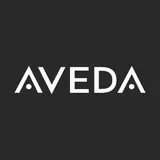
Bed Head
Learn more about our scoring →
About Bed Head
Bed Head operates as a salon-quality haircare line within Unilever's extensive beauty portfolio, offering shampoos, conditioners, treatments, and styling products since 1996. Positioned in the mass-premium haircare segment, the brand competes on accessible price points while promising professional-grade formulation performance for at-home styling and hair maintenance.
Sustainability performance reflects a significant gap between parent company capabilities and brand-level execution. While Unilever maintains sophisticated reporting infrastructure for labor practices, supply chain metrics, and packaging innovation—including independently assured data on plastics reduction and recycled content—Bed Head itself demonstrates limited brand-specific environmental programs or third-party verification. The most substantial performance gap emerges in animal welfare, where the brand lacks cruelty-free certification and continues formulating with animal-derived ingredients.
The parent company relationship provides access to corporate-scale sustainability systems including Scope 3 emissions tracking, supplier engagement protocols, and a €1 billion Climate & Nature Fund commitment. However, these enterprise resources have not translated into distinctive brand-level initiatives or transparent sustainability positioning in the competitive haircare market.
The Good Stuff
Where Bed Head appears to be making meaningful progress. We cross-referenced these findings with multiple independent sources.
Enterprise-Grade Sustainability Infrastructure
Benefits from Unilever's corporate sustainability systems including independently assured health and safety metrics, documented supplier engagement programs, and verified supply chain emissions tracking with external verification
Verified Packaging Reduction Programs
Participates in parent company packaging innovation achieving 23% virgin plastic reduction, 21-22% recycled content integration, and 57% recyclable or compostable packaging design across rigid and flexible materials
Transparent Ingredient Disclosure
Provides clear documentation of formulation composition including explicit disclosure of animal-derived ingredients such as beeswax, enabling informed purchasing decisions without misleading marketing claims
The Reality Check
Areas where the publicly available data gets murky, incomplete, or concerning. We're transparent about the limitations of our analysis.
Brand-Level Verification Gap
Sustainability claims including recycled plastic percentages lack independent third-party certification or verification systems at the brand level, relying exclusively on parent company aggregate reporting without product-specific validation
Animal Testing Policy Allowance
Corporate policy explicitly permits ingredient or product testing on animals when legally required in specific markets, disqualifying the brand from cruelty-free certification through recognized independent verification programs
Minimal Brand-Specific Initiatives
Environmental and social impact programs exist primarily at parent company level without distinctive brand-led biodiversity initiatives, conservation partnerships, or community impact programs visible in public disclosures
Bed Head's
Impact Aura
A visual representation of Bed Head's positive impact
across People, Planet and Animals
Each colored area represents the brand's performance in that sustainability category. The size and intensity of each blob corresponds to their score—larger, more vibrant areas indicate stronger performance.
Our Research
Key findings from our comprehensive analysis of Bed Head's sustainability performance across People, Planet & Animals impact.
Positive Impact on People
Research Highlights
- Labor standards benefit from parent company health and safety metrics with independent third-party assurance covering occupational safety performance
- Supply chain engagement includes documented Scope 3 emission reduction programs with externally verified supplier metrics
- Social impact strategy integrates livelihoods programs across value chains through corporate responsibility infrastructure
- Ingredient safety shows moderate hazard classifications in independent safety databases for multiple product formulations
- Marketing claims around recycled plastic packaging lack brand-level third-party verification beyond parent company disclosures
Evidence Strength
Strong parent company documentation for labor standards and supply chain practices with independent assurance, limited brand-level verification for ingredient safety assessments and sustainability marketing claims
Positive Impact on Planet
Research Highlights
- Packaging innovation demonstrates 23% reduction in virgin plastic use with 21-22% recycled content integration across product portfolio
- Climate action embeds value chain emissions reduction and decarbonization targets within corporate growth strategy planning
- Biodiversity commitment includes €1 billion Climate & Nature Fund allocation by 2030 with 97% verified deforestation-free commodity sourcing
- Chemical responsibility incorporates non-animal safety science and alternative testing methodology for ingredient development
- Water stewardship commitments outlined in environmental policy framework but lack facility-level performance metrics or consumption data
Evidence Strength
Comprehensive documentation for packaging reduction and climate initiatives through parent company reporting systems, limited brand-specific performance data for water management and chemical safety protocols
Positive Impact on Animals
Research Highlights
- Cruelty-free certification not achieved as corporate policy permits animal testing when legally mandated in specific markets
- Vegan formulations unavailable across product lines due to documented animal-derived ingredients including beeswax in styling products
- Wildlife conservation programs show no documented brand-level partnerships, funding initiatives, or habitat protection commitments
- Sustainable sourcing protocols for animal-derived ingredients lack public disclosure, verification systems, or ethical supply chain standards
- Conservation support demonstrates absence of verified species preservation programs or environmental protection partnerships at brand level
Evidence Strength
Clear documentation confirming absence of cruelty-free certification and presence of animal-derived ingredients, minimal evidence of wildlife conservation initiatives or sustainable animal sourcing programs
See the Receipts
We don't just make claims—here are the official certifications that prove Bed Head's sustainability commitments.
Frequently Asked Questions
Is Bed Head sustainable?
Bed Head's sustainability performance centers on parent company Unilever's corporate infrastructure rather than brand-specific programs. Strong areas include packaging innovation with verified plastics reduction and supply chain emissions tracking. Significant gaps appear in animal welfare practices, brand-level environmental initiatives, and independent verification of sustainability marketing claims. Performance remains heavily dependent on enterprise-scale systems without distinctive brand-led sustainability positioning.
Is Bed Head cruelty-free?
Bed Head does not hold cruelty-free certification from recognized independent verification bodies. The brand's parent company maintains a policy that permits animal testing of ingredients or products when legally mandated in specific markets, which disqualifies the brand from cruelty-free status under established certification standards.
Is Bed Head vegan?
Bed Head product formulations are not vegan. Documented evidence confirms the use of animal-derived ingredients including beeswax in styling products such as the Manipulator Matte Hair Wax. The brand does not offer verified vegan product lines or vegan certification for any formulations.
What is Bed Head doing for the environment?
Environmental initiatives operate primarily through parent company Unilever's corporate programs. Documented actions include 23% virgin plastic reduction with 21-22% recycled content in packaging, participation in deforestation-free commodity sourcing verified at 97%, and integration into a €1 billion Climate & Nature Fund commitment. Brand-specific environmental programs, conservation partnerships, or biodiversity initiatives remain absent from public disclosures.
Who owns Bed Head?
Bed Head is owned by Unilever, operating under the TIGI brand portfolio within Unilever's global beauty and personal care division. This parent company relationship provides access to corporate-scale sustainability systems including independently assured labor metrics, supply chain emissions tracking, and packaging innovation programs, though brand-level sustainability execution remains limited.
Does Bed Head test on animals?
Bed Head's corporate policy permits animal testing when legally required in certain markets. This approach reflects regulatory compliance in jurisdictions mandating animal safety testing rather than a blanket ban on animal testing across all operations, distinguishing the brand from cruelty-free certified alternatives in the haircare market.
What sustainability certifications does Bed Head have?
Bed Head does not hold major sustainability certifications such as cruelty-free verification, vegan certification, or third-party environmental standards at the brand level. Sustainability performance documentation comes through parent company Unilever's independently assured corporate reporting rather than product-specific certification programs or brand-level third-party verification systems.
Ready to Shop Bed Head?
Find Bed Head products through our trusted retail partners
The Bottom Line
Bed Head's sustainability profile reflects a significant execution gap between parent company capabilities and brand-level performance, with corporate infrastructure providing documented labor standards and packaging innovation but minimal brand-specific environmental programs or third-party verification. The most substantial performance weakness appears in animal welfare, where absence of cruelty-free certification and continued use of animal-derived ingredients positions the brand poorly against evolving consumer expectations in the haircare market.


